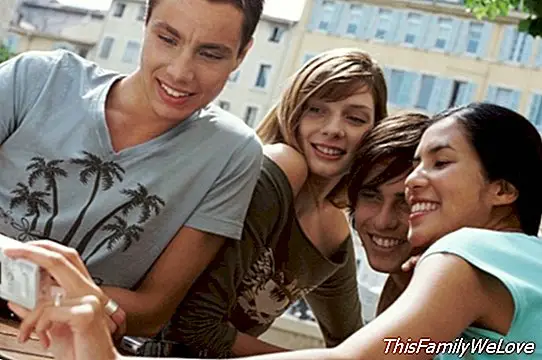How teens understand their freedom

They feel older, they demand more freedom, but they are still immature to use it responsibly. They cry out for them to trust them, they want to free themselves from certain ties and seek to be masters of their own decisions. How can parents get to understand why they want more freedom? And above all, why will they use it?
A characteristic of adolescents is to believe themselves in possession of the truth, that they can do what they want. This rebellion is often accentuated in the holidays, when they demand more freedom to decide for themselves what they want to do: go out, dress as they want, wander, not be tied to anything, have fun and exceed.
What does it mean to be free for a teenager?
Juan Manuel Burgos in his book Anthropology, a guide for existence, says that freedom suggests independence, openness, autonomy, capacity for choice, power, love, will, love. I am free when I choose and when I can choose. It is true that on many occasions, the choice of adolescents is not the same as the decision of their parents. Given this situation, parents and children should seek and find a balance between what the teen wants to do, wants to choose and parents can allow, always looking for their good.
Freedom is then opening, opening up and interacting with the world and it is also a choice. But it is much more than this. "Freedom is the ability of the person to dispose of himself and to decide his destiny through his actions, this is the core of freedom" (Karol Wojtyla).
The power of freedom and the consequences in adolescents
Teenagers enjoy the newly released freedom. They are aware of their greater self-control, of their inner independence. They question the norms and values imposed by their parents, by the school, by society. They want to think and decide for themselves. And his self-affirmation is necessary and essential in this stage of life. The problem arises when their desire for independence collides with the "no" of their parents.
That is when we must reflect with our son on the power of freedom and its consequences. Power to do what ?, for what purpose or for the benefit of whom? James B. Stenson in his book, How to treat adolescents, states that "freedom, which means power, must be directed by responsibility, that is, by an ethical consideration on how the use of that power affects the rights of others".
Today's teenagers find themselves with "a lot of freedom and power" at their fingertips: more freedom of movement to come and go where they please, economic power, the possibility of the use and abuse of alcohol and other drugs , the ability to have sex without the commitment to procreate, etc. Therefore, adolescents must learn to make good use of their freedom with responsibility, knowing the consequences of their choices and actions. That is to say, freedom must be understood not only in terms of their own rights, but also of their corresponding duties.
Personal identity in adolescents
To train our adolescent children in the proper use of their freedom, they must become aware that elections conform our personal identity. They are at the right moment to determine what kind of person they want to be, their life project. That is the path they will travel thanks to freedom.
Juan Manuel Burgos explains the meaning of choosing: "Choosing an act or another means betting, taking a risk, nobody assures me that my choices are appropriate or correct ... Therefore, the use of freedom is always linked to happiness or the frustration in the measure in which I approach or I move away of my vital project ".
Tips for the responsible use of freedom in adolescents
1. Trust Leave him free to tell you with calm what he thinks, thinks, wants to do. Do not react with surprise to possible rebellions. In conversations, listen without imposing. Give opportunities, logical and reasoned, to go using their freedom to certain plans.
2. Patience.You have forbidden him something because you think he is not mature yet to assume that responsibility. Tell him to be patient and that in a few years he will be able to answer for himself. Denying something or saying no, will help you overcome other difficulties later.
3. Responsibility Freedom is conquered with responsible acts. If you are in Babia all day, you do not fulfill your orders, you spend an hour trying on clothes, you have gotten bad grades for getting too attached to Messenger, etc., it shows that you are not yet mature enough to use your freedom at will and therefore, it needs order and discipline.
4. Assertiveness One is freer in so far as he has more capacity to give to others and worry about his personal enrichment.Also, when you have the ability to say "no" to your friends because it goes against your inner freedom, your ideas.
Learn from mistakes
He has come later than the agreed time. He has misused his freedom. That it serves as an experience, as a precaution to know how to act next time. You must repair your bad performance with some show of responsibility in another task, but do not make a world of it. The mistakes will make you more free. Do not stay with the idea that you have lost all your confidence.
Marta Santín
You may also like:
- How to say NO to a teenager
- Personality test: are you a mature person?
- Adolescents and the use of their freedom
- Alcohol and its effects on adolescents
- How to negotiate your teen's night outings




